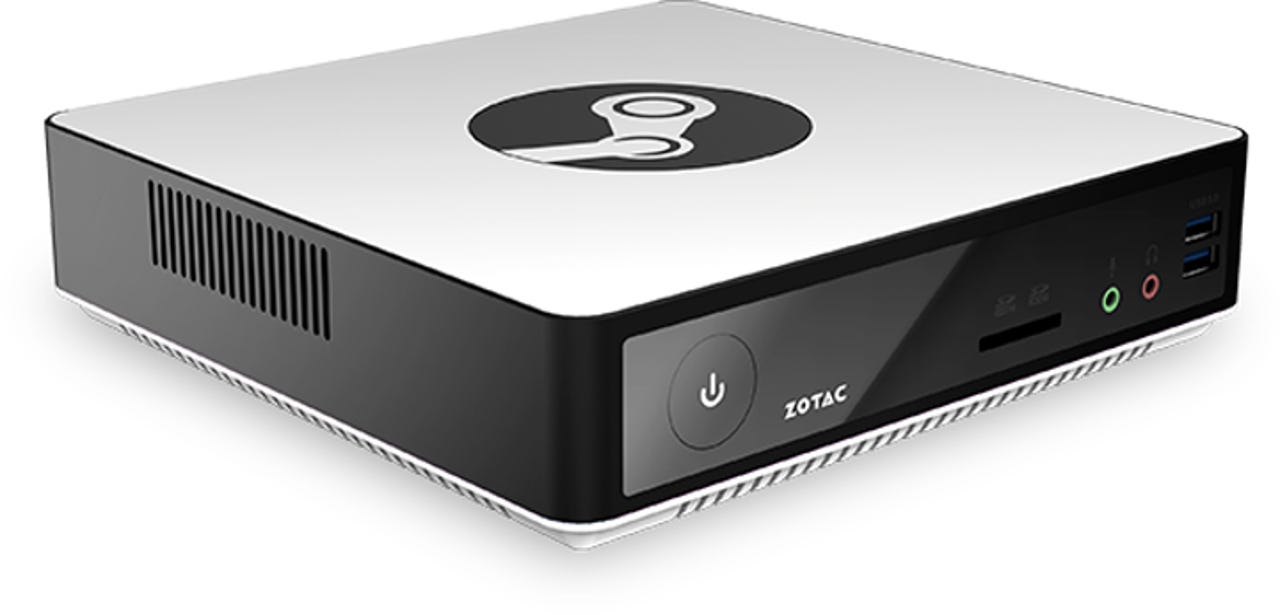Linux gaming Steam Machines finally ship

One constant complaint about Linux has been "There aren't any games!" That was never true. But, in September 2013, Gabe Newell, CEO of Valve with its Steam game platform, announced that proprietary software and closed platforms were gaming's past, and gaming's future belonged to Linux and open platforms.

With more than a 1,000 Steam games available for Linux, let's hear no more about Linux not having games!
These systems all run SteamOS, a Debian 7-based Linux. You don't need a Steam Machine to play Steam games. Besides running on Mac OS X and Windows, Steam games runs well on desktop Linux.
Valve states that Ubuntu is its favorite Linux distribution. You're not, however, restricted to the Debian/Ubuntu Linux family.
Steam games will also run on Red Hat's Fedora. Indeed, a Fedora developer said, "we are also working on a few features in Fedora Workstation to make it a better host for Steam and Steam games. This includes our work on the GL Dispatch and Optimus support as covered in a previous blog and libratbag, our new library for handling gaming mice under Linux. And finally we are working on a few bug fixes in Fedora to make it an even better host for the Steam client related to C++ ABI issues."
Still, while you don't need a Steam Machine to run Steam games, for the best gaming experience you'll probably want a Steam Machine under your Christmas tree.
Steam Machines are gaming consoles. They're meant to compete with Sony's PlayStation 4 and Microsoft's Xbox One. In an interview with Develop, Newell claimed that Steam Machines "are faster than today's consoles" at the same price points.
Valve finally has its own controller, the Steam Controller. This lists for $49.99. Some Steam Machines, including the Alienware and ZOTAC models now shipping come with a controller.
The company also offers a device, the Steam Link, that enables you to stream your Steam Games from your PC to your HDTV. With this, you can use your existing gaming computer and a Steam Controller to play your already purchased game on your television. To use it successfully, Valve recommends you use it with a 100Mbps or faster Ethernet or 802.11ac Wi-Fi.
Laptops
If you want a Steam Machine, here's what the two that are currently available have to offer you.
Dell offers four different Alienware Steam Machine models. The entry-level edition comes with a 3.2GHz Intel Core i3-4170T Dual-Core Processor; 4GBs of RAM; a NVIDIA GeForce GTX GPU 2GB GDDR5; and a 500GB hard drive. It retails for $499.99.
The other models add faster processors, 8GBs of RAM and a 1TB 7200RPM SATA hard drive. At the top of the line, the Alienware Steam Machine is powered with a 3.2GHz Intel Core i7-4785T Quad-Core Processor. This model lists for $749.99.
The ZOTAC NEN Steam Machine starts at $999.99, but it's available from Amazon for $899.99. It's powered by a 2.2GHz Intel Core i5-6400T Quad-Core Processor. Has 8GBs of RAM and a Terabyte hard drive. The real price difference comes from ZOTAC's graphic card: the higher-end NVIDIA GEFORCE GTX 960 GPU 192-bit 3GB GDDR5.
Me? I won't complain if someone buys me either one for Christmas. I'll just be happy when I finally stop hearing about how Linux doesn't have games.
Related Stories: